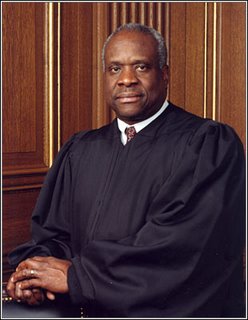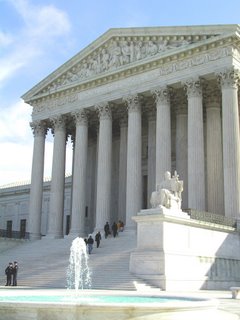 When I watched the Clarence Thomas confirmation hearings many moons ago, I was more than a bit surprised to hear him fight back with a claim that the Anita Hill allegations of the hearings were, in his words, a “high-tech lynching for uppity blacks.”
When I watched the Clarence Thomas confirmation hearings many moons ago, I was more than a bit surprised to hear him fight back with a claim that the Anita Hill allegations of the hearings were, in his words, a “high-tech lynching for uppity blacks.”
And so I waited for the questions that would address the issue:
Judge Thomas, do you think that allegations of sexual harassment against a candidate for the Supreme Court should be investigated by this committee as part of the advice and consent function of the Senate?
If such allegations were true — for a hypothetical candidate, for we know you deny them — do you think that they would be fair grounds for us to deny our consent?
Those questions, I think, would most fairly be answered as “yes.” And if the answers are yes, then the investigation has nothing whatsoever to do with race.
One could quibble with whether the allegations should be aired in open or closed session, but that doesn’t address the issue of whether the issue should be explored. Ultimately, those that were interested in the classic he said / she said dispute claimed to believe the person that aligned with their politics.
But as far as I could tell, those important questions never came, and Senators were too cowed by the remarks to respond to the issue.
And now Judge Thomas is doing it again in a new book. From Jan Crawford Greenburg at ABC News:
Thomas says he had told [his wife] Virginia that some of his opponents “would try to kill me,” and he had grasped how. It dawned on him that he was being treated no differently that those Southern blacks in his grandfather’s time.
“We knew what their weapon of choice was to be: the age-old blunt instrument of accusing a black man of sexual misconduct,” Thomas wrote. “And it did not matter that a black woman was being used to make the accusations.”
And so, Judge Thomas once again walks down the road of blaming racisim for the sexual harrassment investigation.
And I am wondering who will call him on it.
See also:
- The Smear This Time (Anita Hill, New York Times Op-ed)
- The Clarence Thomas-Anita Hill Controversy and Irrational Hatred of Ideological Adversaries (Ilya Somin @ Volokh)
- The Left’s Strategic Mistake (?) Regarding Clarence Thomas (David Bernstein @ Volokh)
- Witness for the Persecution (Eugene Robinson at Washington Post)
- Anita Hill reemerges, as she must, to respond to the Clarence Thomas memoir (Ann Althouse)
- Anita Hill Fights Back (Peter Lattman @ WSJ Law Blog)
- An Angry Justice Thomas Targets Liberal Groups (ABA Journal)
Addendum:
- ABC Sympathetically Spins ‘Withering’ Media Attacks on Anita Hill (Scott Whitlock, NewsBusters)
- Justice Thomas: I’m not “bitter”, you “uninformed … traitor” (PrawfsBlog)
- Justice Thomas Appreciation Page;
- Clarence Thomas: “Character” is What Matters (Subject to Complete Defeasance)
Links to this post:
blawg review #129
3b49587u1_copy_7 in thinking about the number of this week’s edition of blawg review, it occurs to me that it’s pretty darn close to the route number of a local main artery — i live and work not far from route 128. coincidence? …posted by David Harlow @ October 08, 2007 7:04 AM
“silence never makes change”
that’s what anucha brown sanders said about sexual harassment in the workplace, reflecting upon her courtroom victory yesterday against the knicks, coach isiah thomas, and madison square gardens. the former knicks executive was awarded …posted by Kia Franklin @ October 03, 2007 10:33 AM


